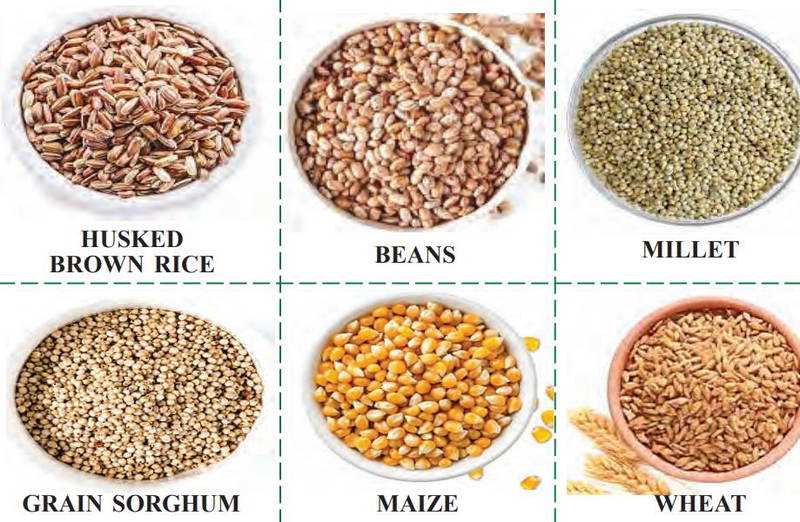As global markets continue to reel from economic uncertainties and geopolitical tensions, stakeholders within the agricultural sector have cast doubt on the likelihood of significant grain imports in the near future.
This skepticism is rooted in a complex web of factors including domestic production levels, international trade policies, supply chain disruptions, and concerns about food security. The convergence of these factors has led experts, policymakers, and industry players to express reservations about the feasibility and desirability of grain imports in the current environment.
Domestic Production and Self-Sufficiency
One of the primary reasons stakeholders believe that grain imports are unlikely in the near future is the strong emphasis on domestic production. Many countries have invested heavily in boosting their agricultural output, aiming to achieve or maintain self-sufficiency in staple crops like wheat, corn, and rice. This focus on domestic production is driven by a desire to reduce dependence on foreign supplies, particularly in the face of global supply chain disruptions and trade uncertainties.
In several countries, favorable weather conditions over recent seasons have resulted in bumper harvests, further reducing the need for imports. For instance, in major grain-producing nations, advances in agricultural technology, improved seed varieties, and better farming practices have led to record yields. These developments have bolstered national grain reserves, providing a buffer against potential shortages and reducing the urgency for imports.
READ ALSO:Kaduna Lecturer, Others Regain Freedom After 31 Days
Moreover, government policies in many countries have increasingly supported local farmers through subsidies, price supports, and other incentives to encourage domestic production. These measures not only help stabilize the agricultural sector but also contribute to national food security. As a result, even in the face of rising global grain prices, many governments are opting to rely on their domestic harvests rather than turning to the international market.
Trade Policies and Tariffs
Another significant factor influencing the outlook on grain imports is the current landscape of international trade policies. In recent years, trade tensions between major economies have led to the imposition of tariffs and other trade barriers that have complicated the flow of agricultural commodities across borders. The uncertainty surrounding trade agreements, particularly between large grain-exporting and importing countries, has made it more challenging to secure reliable and cost-effective imports.
For example, ongoing trade disputes between key players like the United States and China have had ripple effects throughout the global grain market. Tariffs on agricultural products, including grains, have led to price volatility and disrupted traditional supply chains. In response, some countries have sought to diversify their trade partners or increase domestic production to mitigate the risks associated with these disputes.
Furthermore, the rise of protectionist policies in some regions has led to restrictions on grain exports, as countries seek to safeguard their own food supplies in times of uncertainty. These export restrictions can exacerbate global supply shortages and drive up prices, making imports less attractive for countries that would otherwise rely on foreign grain to meet their needs.
Supply Chain Disruptions
The global supply chain, already strained by the COVID-19 pandemic, has faced additional challenges due to geopolitical tensions, natural disasters, and logistical bottlenecks. These disruptions have affected the availability and cost of transporting grain from producers to consumers, further complicating the prospects for grain imports.
Shipping delays, container shortages, and rising transportation costs have all contributed to the difficulties in moving grain across international borders. These logistical challenges have made importing grain more expensive and less reliable, leading some countries to reconsider their dependence on foreign supplies.
In addition, the ongoing war in Ukraine, a major grain-producing and exporting country, has had significant repercussions for global grain markets. The conflict has disrupted Ukrainian agricultural production and export infrastructure, leading to reduced grain availability and higher prices on the international market. This has further strained the global supply chain, making it even more challenging for countries to secure the grain imports they need.
Food Security Concerns
Food security remains a top priority for many countries, particularly in the wake of the COVID-19 pandemic, which exposed vulnerabilities in global food systems. The uncertainty surrounding future pandemics, climate change, and other global challenges has prompted governments to reassess their food security strategies, with many opting to prioritize domestic production over imports.
Stakeholders argue that relying on domestic production not only enhances food security but also provides greater control over food quality and safety. By reducing dependence on imports, countries can better ensure that their populations have access to safe, nutritious, and affordable food.
Moreover, the pandemic highlighted the risks associated with over-reliance on global supply chains, as lockdowns and border closures disrupted the flow of goods, including essential foodstuffs. In response, some countries have implemented policies aimed at increasing food self-sufficiency, such as promoting local food production and reducing food waste. These measures have further diminished the likelihood of grain imports in the near future.
Economic Considerations
The economic rationale behind grain imports has also come under scrutiny in the current environment. High global grain prices, driven by supply chain disruptions, trade barriers, and increased demand, have made imports less economically viable for many countries. In some cases, the cost of importing grain may exceed the benefits, particularly if domestic production can meet most or all of a country’s needs.
Additionally, the economic downturns experienced by many countries as a result of the pandemic have led to tighter budgets and reduced government spending. In this context, policymakers may be more inclined to support domestic agriculture as a means of stimulating the local economy and creating jobs, rather than spending scarce resources on costly imports.
For countries with limited foreign exchange reserves, the decision to import grain may be further complicated by the need to prioritize other essential imports, such as fuel, medicine, or industrial goods. In such cases, grain imports may be deferred or minimized in favor of more critical needs.
Environmental and Sustainability Factors
Environmental sustainability has become an increasingly important consideration in agricultural and trade policies. Stakeholders are increasingly aware of the environmental impact of long-distance grain transportation, which contributes to greenhouse gas emissions and other forms of environmental degradation. As a result, there is growing support for locally sourced and sustainably produced food, which reduces the carbon footprint associated with food production and distribution.
Countries that have committed to reducing their carbon emissions and promoting sustainable development may be less inclined to import grain from distant sources, particularly if domestic alternatives are available. This trend is in line with broader efforts to promote sustainable agriculture, which emphasizes the importance of minimizing environmental impact while ensuring food security.
Furthermore, climate change poses a significant threat to global food production, with extreme weather events becoming more frequent and severe. In this context, relying on international markets for grain imports may become increasingly risky, as climate-related disruptions could lead to sudden shortages or price spikes. By investing in climate-resilient agriculture and reducing dependence on imports, countries can better protect their food security in the face of these challenges.
Also,
The convergence of factors such as robust domestic production, trade policy uncertainties, supply chain disruptions, food security concerns, economic considerations, and environmental sustainability has led stakeholders to conclude that grain imports are unlikely in the near future.
While the global grain market remains a vital component of the world food system, the current environment has prompted many countries to prioritize self-sufficiency and reduce their reliance on foreign imports. As these trends continue to evolve, the agricultural sector will need to adapt to the changing landscape, balancing the need for food security with the challenges posed by global trade and environmental sustainability.






























































